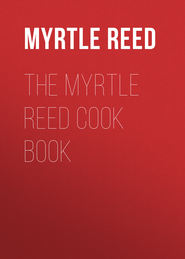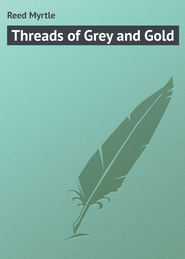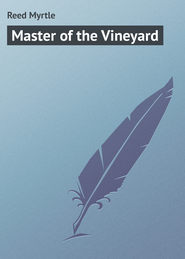По всем вопросам обращайтесь на: info@litportal.ru
(©) 2003-2024.
✖
The Master's Violin
Автор
Год написания книги
2017
Настройки чтения
Размер шрифта
Высота строк
Поля
He whisked off again and presently returned, holding under his arm something that was wrapped in many pieces of ragged silk. One by one these were removed, and at last the treasure was revealed.
He held it off at arm’s length, where the light might shine upon its beauty, and well out of reach of a random touch. The Doctor said the expected thing, but it fell upon deaf ears. The Master’s fine face was alight with more than earthly joy, and he stroked the brown breasts lovingly.
“Mine Cremona!” he breathed. “Mine – all mine!”
VIII
A Bit of Human Driftwood
“Present company excepted,” remarked Lynn, “this village is full of fossils.”
“At what age does one get to be a ‘fossil,’” asked Aunt Peace, her eyes twinkling. “Seventy-five?”
“That isn’t fair,” Lynn answered, resentfully. “You’re younger than any of us, Aunt Peace, – you’re seventy-five years young.”
“So I am,” she responded, good humouredly. She was upon excellent terms with this tall, straight young fellow who had brought new life into her household. A March wind, suddenly sweeping through her rooms, would have had much the same effect.
“Am I a fossil?” asked Margaret, who had overheard the conversation.
“You’re nothing but a kid, mother. You’ve never grown up. I can do what I please with you.” He picked her up, bodily, and carried her, flushed and protesting, to her favourite chair, and dumped her into it. “Aunt Peace, is there any place in the house where you might care to go?”
“Thank you, no. I’ll stay where I am, if I may. I’m very comfortable.”
Lynn paced back and forth with a heavy tread which resounded upon the polished floor. Iris happened to be passing the door and looked in, anxiously, for signs of damage.
“Iris,” laughed Miss Field, “what a little old maid you are! You remind me of that story we read together.”
“Which story, Aunt Peace?”
“The one in which the over-neat woman married a careless man to reform him. She used to follow him around with a brush and dustpan and sweep up after him.”
“That would make him nice and comfortable,” observed Lynn. “What became of the man?”
“He was sent to the asylum.”
“And the woman?” asked Margaret.
“She died of a broken heart.”
“I think I’d be in the asylum too,” said Lynn. “I do not desire to be swept up after.”
“Nobody desires to sweep up after you,” retorted Iris, “but it has to be done. Otherwise the house would be uninhabitable.”
“East Lancaster,” continued Lynn, irrelevantly, “is the abode of mummies and fossils. The city seal is a broom – at least it should be. I was never in such a clean place in my life. The exhibits themselves look as though they’d been freshly dusted. Dirt is wholesome – didn’t you ever hear that? How the population has lived to its present advanced age, is beyond me.”
“We have never really lived,” returned Iris, with a touch of sarcasm, “until recently. Before you came, we existed. Now East Lancaster lives.”
“Who’s the pious party in brown silk with the irregular dome on her roof?” asked Lynn.
“The minister’s second wife,” answered Aunt Peace, instantly gathering a personality from the brief description.
“So, as Herr Kaufmann says. Might one inquire about the jewel she wears?”
“It’s just a pin,” said Iris.
“It looks more like a glass case. In someway, it reminds me of a museum.”
“It has some of her first husband’s hair in it,” explained Iris.
“Jerusalem!” cried Lynn. “That’s the limit! Fancy the feelings of the happy bridegroom whose wife wears a jewel made out of her first husband’s fur! Not for me! When I take the fatal step, it won’t be a widow.”
“That,” remarked Margaret, calmly, “is as it may be. We have the reputation of being a bad lot.”
Lynn flushed, patted his mother’s hand awkwardly, and hastily beat a retreat. They heard him in the room overhead, walking back and forth, and practising feverishly.
“Margaret,” asked Miss Field, suddenly, “what are you going to make of that boy?”
“A good man first,” she answered. “After that, what God pleases.”
By a swift change, the conversation had become serious, and, always quick at perceiving hidden currents, Iris felt herself in the way. Making an excuse, she left them.
For some time each was occupied with her own thoughts. “Margaret,” said Miss Field, again, then hesitated.
“Yes, Aunt Peace – what is it?”
“My little girl. I have been thinking – after I am gone, you know.”
“Don’t talk so, dear Aunt Peace. We shall have you with us for a long time yet.”
“I hope so,” returned the old lady, brightly, “but I am not endowed with immortality – at least not here, – and I have already lived more than my allotted threescore and ten. My problem is not a new one – I have had it on my mind for years, – and when you came I thought that perhaps you had come to help me solve it.”
“And so I have, if I can.”
“My little girl,” said Aunt Peace, – and the words were a caress, – “she has given to me infinitely more than I have given to her. I have never ceased to bless the day I found her.”
Between these two there were no questions, save the ordinary, meaningless ones which make so large a part of conversation. The deeps were silently passed by; only the shallows were touched.
“You have the right to know,” Miss Field continued. “Iris is twenty now, or possibly twenty-one. She has never known when her birthday came, and so we celebrate it on the anniversary of the day I found her.
“I was driving through the country, fifteen or twenty miles from East Lancaster. I – I was with Doctor Brinkerhoff,” she went on, unwillingly. “He had asked me to go and see a patient of his, in whom, from what he had told me, I had learned to take great interest. Doctor Brinkerhoff,” she said, sturdily, “is a gentleman, though he has no social position.”
“Yes,” replied Margaret, seeing that an answer was expected, “he is a charming gentleman.”
“It was a warm Summer day, and on our way back we came upon a dozen or more ragged children, playing in the road. They refused to let us pass, and we could not run over them. A dilapidated farmhouse stood close by, but no one was in sight.
“‘Please hold the lines,’ said the Doctor. ‘I will get out and lead the horse past this most unnecessary obstruction.’ When he got out, the children began to throw stones at the horse. It was a young animal, and it started so violently that I was almost thrown from my seat. One child, a girl of ten, climbed into the buggy and shrieked to the rest: ‘I’ll hold the lines – get more stones!’
“I was frightened and furiously angry, but I could do nothing, for I had only one hand free. I tried to make the child sit down, and she struck at me. Her torn sleeve fell back, and I saw that her arm was bruised, as if with heavy blows.











